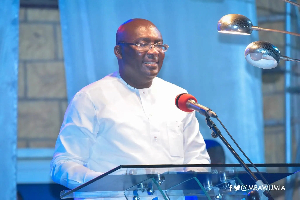Private enterprises operating in the country say the high interest rates were negatively affecting their operations in the country.
According to the enterprises, they are unable to make profits to expand their businesses due to the high interest rates .
Chief Executive Officer (CEO) of PEF, Nana Osei-Bonsu, who disclosed this to the media in Accra, blamed government for the situation, saying such rates do not exist anywhere in the sub-region.
“How viable can businesses survive with this kind of rates? We are in a global village where we are competing with the rest of the world and this kind of situation puts us at a complete disadvantage.”
As of now, interest rates in the country are hovering around 31 percent on the average.
On November 12, 2014, the Central Bank reviewed its monetary policy rate upwards by 200 basis point from 19 percent to 21 percent as part of measures to check inflation, which recorded 16.9 percent in October 2014.
Inflation stood at 16.5 percent in September 2014, and 13.5 percent at end-December 2013.
The inflation pressures in 2014 resulted in the sharp depreciation of the local currency against foreign currencies, as well as fuel and utility price adjustments.
Inflation during the first 10 months of the year reflected significantly in the non-food inflation than in the food inflation.
It would also be recalled that the Minister of Trade and Industry, Dr Ekow Spio-Garbrah announced that his outfit would embark on a crusade to bring down high interest rates in the country.
The average interest rate on the 91-day Treasury bill rose to 23.5 percent in September 2014 from 21.59 percent in September 2013.
However, the difference between borrowing and lending rates declined to 14.25 percent in September 2014.
Click to view details



Business News of Wednesday, 26 November 2014
Source: Daily Guide
Interest rates strangle private enterprises

















